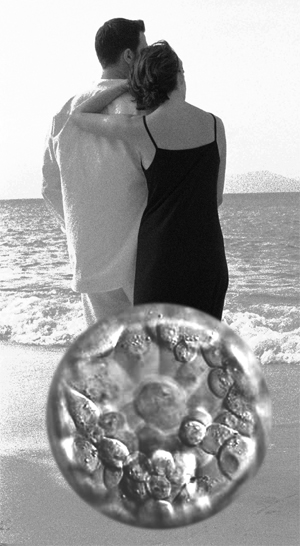General InfoFor the embryo donor, donating is often simple and straightforward. We offer three options for individuals wanting to donate their embryos; Anonymous and Approved, as well as the more complex Open Embryo Donation procedure. Basic information about these three options are listed below. You may also want to visits our Knowledge Center and download pdf files that will explain the process in further detail. As always, if we have failed to answer your questions or you would like to move forward with donating your embryos, please contact us. 
Anonymous Embryo DonationThe most common form of embryo donation is done anonymously and often referred to as "embryo donation". In this form, the donors and recipients never meet. All potential embryo donors complete an on-line application that provides detailed information about themselves and their embryos. While not always requested, embryo donors are able to stipulate the characteristics of embryo recipients such as race, religion and marital status. EDI reviews the application and investigates the quality of the embryos. If we determine the embryos are likely to be chosen and have an excellent chance of creating a family, we then have the embryos shipped to EDI at no charge to either the donors or recipients. Once we receive the embryos, information about the donors and the embryos is then made available on our embryo search page. Potential recipients are free to review the database at any time. If they find suitable embryos, the potential recipients apply to EDI through a separate on-line application. EDI carefully reviews the recipient's information making certain they meet any applicable donor stipulations. Once the recipient is accepted and embryos chosen, we place the embryos on reserve, complete the evaluation of the recipient and eventually transfer the embryos. This is the most common form of embryo donation. It is perfect for the donors who want to provide a wonderful gift while desiring closure through donating their embryos. It is ideal for the embryo recipient who wants the least expensive option in receiving embryos. The decision to accept the embryo recipient into the program is the responsibility of EDI's clinicians, who have over a quarter century of combined experience in the infertility field. EDI is strongly committed to helping match healthy cryopreserved embryos with healthy embryo recipients.

Approved Embryo DonationApproved embryo donation maintains anonymity while providing the donor with an increased level of screening of the recipients. The potential recipient undergo an interview with a qualified Mental Health Professional (MHP) with the results of the interview sent to the donors for approval. The donors and recipients still never meet. The application is the same as with anonymous embryo donation. Donors must specifically request this form of donation. The potential embryo recipients must indicate they will accept this extra level of evaluation. If potential embryo recipients are interested in those embryos, the EDI staff will find a Mental Health Professional (MHP) close to where the recipients live. EDI may, however, request that the evaluation done at EDI if qualified MHP's cannot be found close to the recipient's home. After the MHP evaluates the potential embryo recipients, EDI generates a summary letter about the evaluation excluding any identifying information about the recipients or the MHP who performed the evaluation. This summary is reviewed by the EDI staff for completeness and then forwarded to the embryo donors for review. Upon acceptance by the embryo donors, the recipients eventually undergo the embryo transfer at EDI. The embryo recipients pay the costs for the MHP evaluation. If the donors reject three or more potential embryo recipients, EDI reserves the right to have the embryos transferred to another facility. The costs for transferring the embryos to the location of the donor's choice will be equally divided between the donor and EDI. This assures that EDI does not store embryos indefinitely and encourages the donors to reasonable in approving embryo recipients. Approved embryo donation is the second most common form of embryo donation. It is ideal for the donors who want additional information about the recipients. It is ideal for the recipients that are willing to participate in the MHP interview process. EDI, based on their vast experience in the field of embryo donation and reproductive medicine, still ultimately decides which embryo recipients are emotionally and physically ready to accept donated embryos gathering on their vast experience in the field of embryo donation. Open Embryo Donation
Open Embryo Donation contains some of the steps commonly reserved for adoption of a live child. Embryo donors must indicate that this is the only method they will accept in donating their embryos. Potential embryo recipients also have to be willing to undergo this more involved and expensive process. The application is the same as with the other two types of embryo donation. The donors must specifically request this form of donation via their on-line application. Potential embryo recipients must also indicate they will accept the extra level of evaluation and interaction via their on-line application. This process is a more complex than the anonymous or approved embryo donation procedures. The general procedures outlined below:
All extra fees involved are paid for by the embryo recipients. If the donors reject three or more potential embryo recipients, EDI reserves the right to have the embryos transferred to another facility. The costs for transferring the embryos to the location of the donor's choice will be equally divided between the donor and EDI. This assures that EDI will not store embryos indefinitely and encourages the donors to reasonable in approving potential embryo recipients. Open embryo donation is the least common form of embryo donation. It requires a greater level of participation for both donors and recipients. This also is the most expensive form of embryo donation. The donors and recipients will clearly know each other. It is up to the participantsto determine the type of relationship they will have after the embryos are transferred. It is uncertain if the Florida state statutes will protect all participants, so legal representation is required and contracts will need to be signed. |
||
|
|
|







